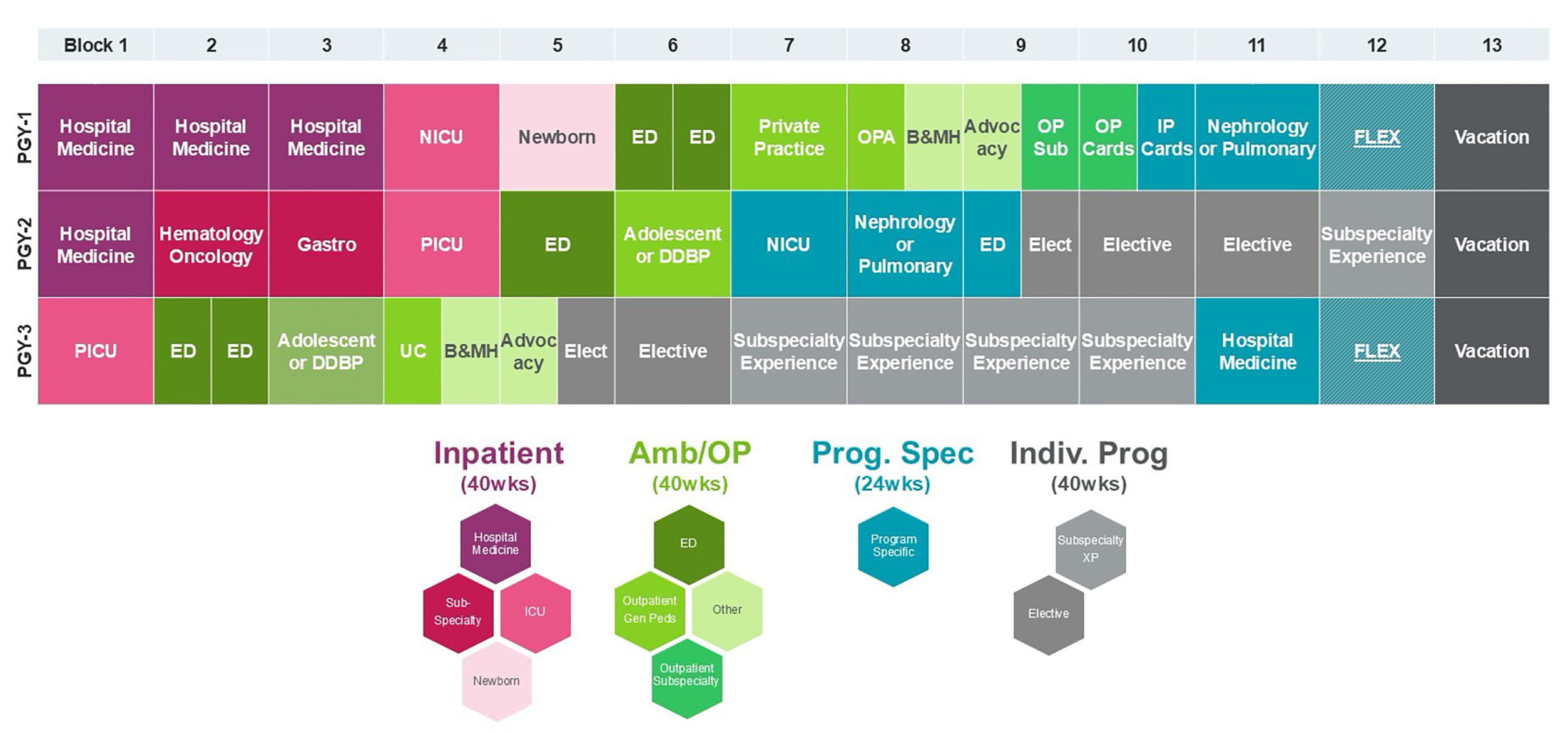Categorical Rotations
Beginning in the 2025–2026 academic year, our pediatric residency program will launch a fully updated curriculum aligned with the new ACGME requirements. This revision provides a more balanced and personalized training experience, with increased exposure to ambulatory and subspecialty care, expanded mental health training, and 40 weeks of flexible, individualized curriculum time. These innovations are designed to prepare our residents for the evolving landscape of pediatric care while supporting their unique career goals.
Our schedule is organized into 13 four-week blocks per academic year. Each rotation is mapped to one of the four ACGME curriculum categories, ensuring a diverse and comprehensive educational experience. Highlights include our Behavioral and Mental Health rotation (two weeks each in PGY-1 and PGY-3), an enhanced Advocacy 2.0 rotation (two weeks in PGY-3), and a newly created Urgent Care rotation (two weeks in PGY-3). Evey resident has one full block of vacation each academic year.
To allow residents to fully engage in their inpatient experiences, we have implemented “Intentional Clinic Blocking,” a model that removes continuity clinic duties during inpatient rotations, eliminating the need for cross-coverage, similar to the coverage model in traditional X+Y scheduling. In keeping with ACGME guidelines, residents will complete no more than two consecutive inpatient blocks (8 weeks), promoting a healthier balance between inpatient and outpatient training.




